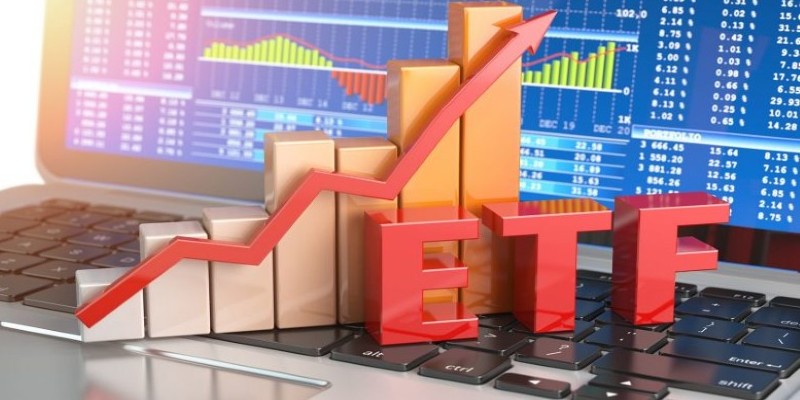7 Best Sector-Specific ETFs To Consider Now
Exchange-Traded Funds (ETFs) are increasingly popular investment vehicles, providing an easy way to diversify a portfolio. While broad-market ETFs track entire indices, sector-specific ETFs focus on individual industries or sectors, offering investors the opportunity to target specific areas of the economy. We'll look at some of the best sector-specific ETFs to consider now, keeping in mind trends, performance, and potential for growth.
Why Sector-Specific ETFs?
Investing in sector-specific ETFs can be a strategic approach to portfolio management. Unlike broad-market ETFs, which cover a wide range of industries, sector ETFs concentrate on particular areas like technology, healthcare, energy, or financials. This allows investors to gain exposure to industries that may outperform the broader market in specific economic cycles.

One of the main advantages of sector-specific ETFs is the ability to capitalize on trends within a particular industry. For example, as renewable energy continues to grow, an investor might choose to invest in an energy sector ETF that focuses on clean energy companies. By selecting sector-specific ETFs, investors can align their portfolios with their market outlook and risk tolerance.
Technology Sector ETFs
The technology sector has been one of the leading drivers of growth in recent years, and it shows no signs of slowing down. The rise of artificial intelligence, cloud computing, and other digital innovations has created significant opportunities within the tech industry. Sector-specific ETFs that focus on technology provide exposure to high-growth companies, such as those involved in software development, semiconductors, and digital infrastructure.
One of the top technology ETFs to consider right now is the Invesco QQQ Trust (QQQ). This ETF tracks the Nasdaq-100 Index, which includes 100 of the largest non-financial companies listed on the Nasdaq Stock Market. Many of these companies, including giants like Apple, Microsoft, and Alphabet, are at the forefront of technological innovation.
Healthcare Sector ETFs
The healthcare sector is often seen as a stable, recession-resistant area in which to invest. The demand for healthcare services tends to remain strong regardless of the broader economic climate. Additionally, the healthcare industry is undergoing significant transformation, with breakthroughs in biotechnology, pharmaceuticals, and medical devices driving growth.

One of the top ETFs in this sector is the Health Care Select Sector SPDR Fund (XLV). This fund includes a range of healthcare-related companies, including pharmaceutical giants like Johnson & Johnson and biotechnology firms like Amgen. The ETF provides exposure to a diversified mix of healthcare companies, which helps mitigate risk while allowing investors to benefit from the growth of the sector.
Energy Sector ETFs
Energy has long been a core component of the global economy, and the sector continues to attract investors' attention. The rise of clean energy and renewable technologies, coupled with ongoing demand for traditional energy sources, creates an intriguing mix for sector-specific ETFs in this space.
A leading energy ETF is the Energy Select Sector SPDR Fund (XLE). This ETF tracks the performance of large-cap energy companies involved in oil, gas, and other energy production. With top holdings in firms like ExxonMobil and Chevron, XLE provides exposure to some of the biggest players in the energy industry.
For investors interested in the renewable energy side of the sector, the iShares Global Clean Energy ETF (ICLN) is an excellent choice. This fund focuses on companies involved in the production of clean and renewable energy, including solar, wind, and hydrogen technologies. As the world shifts towards more sustainable energy sources, clean energy ETFs like ICLN offer significant growth potential.
Financial Sector ETFs
The financial sector is a key pillar of the global economy, encompassing banks, insurance companies, and asset managers. While the sector can experience volatility based on interest rates and economic cycles, it has shown strong resilience over time. Investing in financial sector ETFs can offer both capital appreciation and dividend income.

The Financial Select Sector SPDR Fund (XLF) is a popular choice for those looking to invest in the financial sector. This ETF includes top financial companies such as JPMorgan Chase, Bank of America, and Berkshire Hathaway. With exposure to a broad array of financial services, XLF is a solid option for investors looking to gain exposure to the financial sector's strength.
Consumer Discretionary Sector ETFs
The consumer discretionary sector includes companies that sell non-essential goods and services, such as automobiles, entertainment, and luxury goods. While this sector is more sensitive to economic cycles, it can offer significant growth potential during periods of strong consumer spending.
One of the standout consumer discretionary ETFs is the Consumer Discretionary Select Sector SPDR Fund (XLY). This fund includes some of the largest consumer-facing companies, such as Amazon, Tesla, and Home Depot. As consumer spending remains a key driver of economic growth, XLY offers a great way to gain exposure to the sector.
Industrial Sector ETFs
The industrial sector includes companies that produce goods used in construction, manufacturing, transportation, and aerospace. This sector is heavily tied to the broader economy, and as global supply chains recover from disruptions, industrial companies are expected to see increased demand for their products and services.

A leading industrial ETF is the Industrial Select Sector SPDR Fund (XLI). This ETF includes large-cap industrial companies like Honeywell, Boeing, and Lockheed Martin. With its diverse mix of industries, XLI offers a comprehensive view of the industrial sector.
Real Estate Sector ETFs
Real estate is another sector that often provides strong returns, particularly when interest rates are low. Real estate sector ETFs focus on real estate investment trusts (REITs), which own, operate, or finance income-producing properties.

The Real Estate Select Sector SPDR Fund (XLRE) is a top choice for real estate investors. It includes a mix of large-cap REITs that focus on office buildings, retail spaces, residential properties, and industrial facilities. With a strong yield and diversification, XLRE is a solid choice for those looking to add real estate exposure to their portfolios.
Conclusion
Sector-specific ETFs offer investors the ability to target industries or sectors that align with their investment goals, risk tolerance, and market outlook. By focusing on particular industries, such as technology, healthcare, energy, or financials, investors can capitalize on trends that may outperform the broader market.
While these ETFs provide concentrated exposure to specific industries, they can also be more volatile than broad-market ETFs, especially during economic downturns. Therefore, it's crucial to conduct thorough research and consider the economic environment before making any investment decisions.